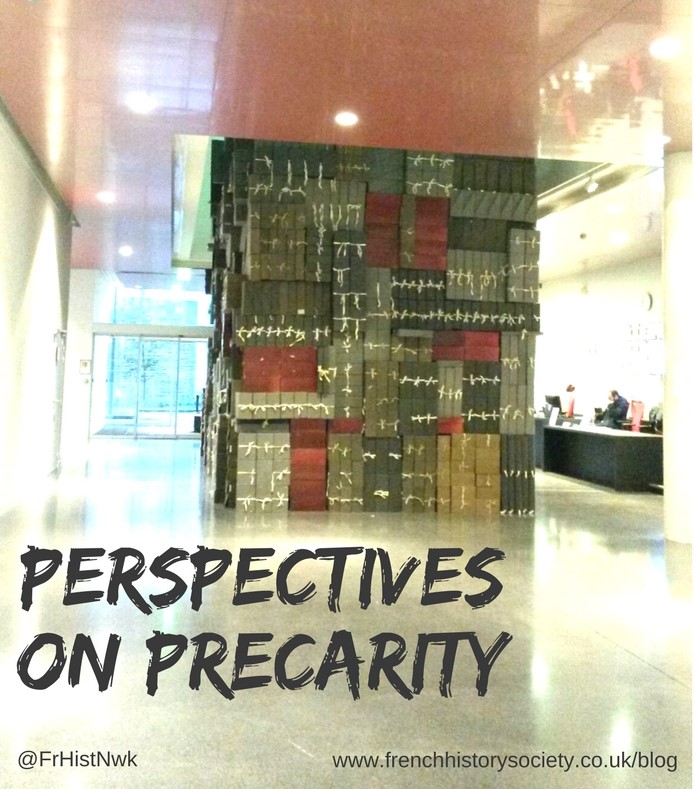Perspectives on Precarity: #FHNPrecarity
Being on a short-term contract is a common experience for many PhD students and postdoctoral researchers. We wanted to explore the impact of precarity on teaching, research and the wellbeing of staff and students and so, in spring 2017, we asked postgraduates and early-career researchers to share (anonymously) their thoughts and experiences of research and teaching when not in a permanent post.
A note on our mini-series title. ‘Precarity’ is a newish term, and one that is closely linked to sociological literature on work and economy. More specifically, it’s linked to the new sociological category of the ‘precariat’. Many people would not immediately categorise someone with a PhD as being part of the ‘precariat’, but it no doubt defines PhDs who don’t have a permanent job AND who don’t have the stable financial background and family history of education that might lift them out of this category and into that of a young professional.
It soon became clear from the length and detail of the responses we received that this was not just an extremely important issue but one which is absolutely definitive of the contemporary experience of university research and teaching. More than that, people were willing to share their experiences to support each other. Reading through the almost thirty pages of responses demonstrated the scale of the problem, and really brought home how angry, disappointed and disillusioned many researchers are. Yet our respondents also offered articulate and thoughtful suggestions for improving academic culture. These testimonies indicate the personal impact of precarity in academia, supplementing advice on ‘coping’ with temporary contracts and the UCU’s Stamp Out campaign.
A note on our wonderful contributors: 10 [at the time of the survey] PGRs and ECRs took part in the questionnaire. Their ages ranged between 28 and 34, and approximately three quarters of them were female. Some were the first to attend university in their family, whilst others were the children of graduates. Some were in the late stages of PhDs; others had completed theirs in the last five years. They were, at the time of responding to the questionnaire, on a range of contracts, from hourly-paid teaching to three-year research postdocs, with one respondent on a permanent contract and another unemployed following a temporary lectureship at a leading university.
It would be really easy to turn this mini-series into a barbed rant about the current state of the academic job market, the treatment of hourly-paid and temporary staff, and the challenges of finding meaningful ways to support one another. Whilst getting fired-up and angry can be immensely satisfying and cathartic on one level – and, many would consider, more-than justified by the current hiring practices of many universities – this mini-series goes further. Sharing experiences is a form of solidarity, of knowing you are not alone. Through the diverse readership of the FHN blog, we hope that some of the thoughtful suggestions made by our contributors and presented over the following three blog posts can make their way to the listening ears of those able to make a difference.
Sarah Wood & Ellen Crabtree



